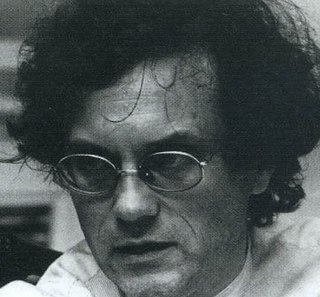A Quote by Lewis Mumford
By fashion and built-in obsolescence the economies of machine production, instead of producing leisure and durable wealth, are duly cancelled out by the mandatory consumption on an even larger scale.
Related Quotes
Unfortunately, once an economy is geared to expansion, the means rapidly turn into an end and "the going becomes the goal." Even more unfortunately, the industries that are favored by such expansion must, to maintain their output, be devoted to goods that are readily consumable either by their nature, or because they are so shoddily fabricated that they must soon be replaced. By fashion and built-in obsolescence the economies of machine production, instead of producing leisure and durable wealth, are duly cancelled out by the mandatory consumption on an even larger scale.
The effect of the post-Enlightenment project for human society is that all human activity is absorbed into labor. It becomes an unending cycle of production for the sake of consumption. The modern concept of "built-in obsolescence" makes this clear. The cycle of production and consumption has to be kept going, and the work of the artist or craftsman who aims to create something enduring becomes marginal to the economic order.
As mass production has to be accompanied by mass consumption, mass consumption, in turn, implies a distribution of wealth ... to provide men with buying power. ... Instead of achieving that kind of distribution, a giant suction pump had by 1929-30 drawn into a few hands an increasing portion of currently produced wealth. ... The other fellows could stay in the game only by borrowing. When their credit ran out, the game stopped.
I shall argue that it is the capital stock from which we derive satisfaction, not from the additions to it (production) or the subtractions from it (consumption): that consumption, far from being a desideratum, is a deplorable property of the capital stock which necessitates the equally deplorable activity of production: and that the objective of economic policy should not be to maximize consumption or production, but rather to minimize it, i.e. to enable us to maintain our capital stock with as little consumption or production as possible.
Production for the sake of production - the obsession with the rate of growth, whether in the capitalist market or in planned economies - leads to monstrous absurdities. The only acceptable finality of human activity is the production of a subjectivity that is auto-enriching its relation to the world in a continuous fashion.
In a sense, every tool is a machine--the hammer, the ax, and the chisel. And every machine is a tool. The real distinction is between one man using a tool with his hands and producing an object that shows at every stage the direction of his will and the impression of his personality; and a machine which is producing, without the intervention of a particular man, objects of a uniformity and precision that show no individual variation and have no personal charm. The problem is to decide whether the objects of machine production can possess the essential qualities of art.
The greatest change we need to make is from consumption to production, even if on a small scale, in our own gardens. If only 10% of us do this, there is enough for everyone. Hence the futility of revolutionaries who have no gardens, who depend on the very system they attack, and who produce words and bullets, not food and shelter.





































